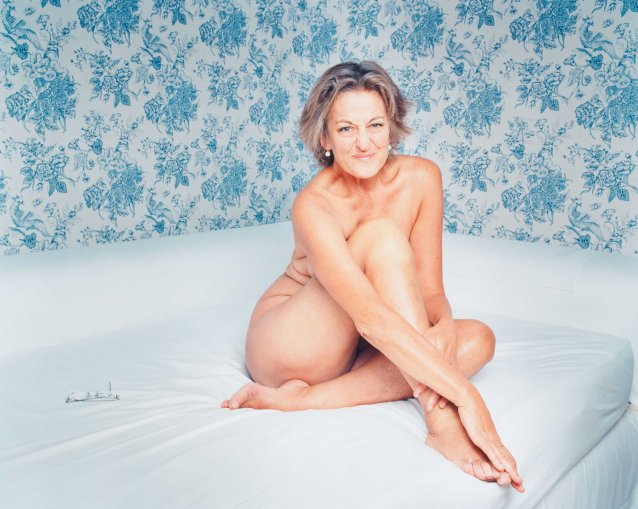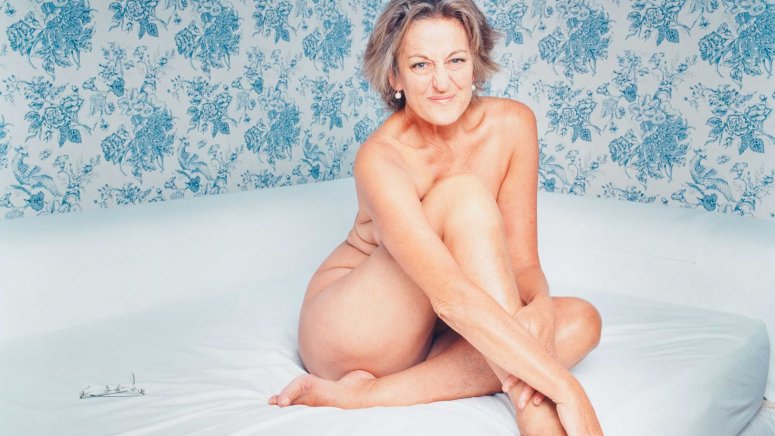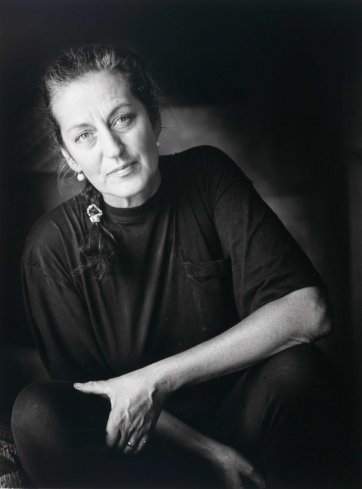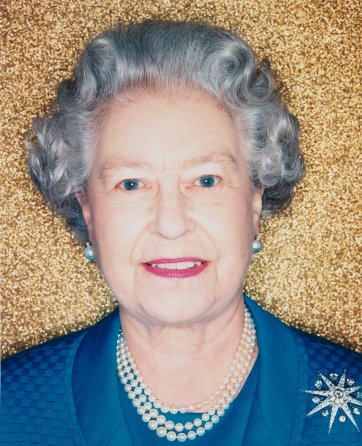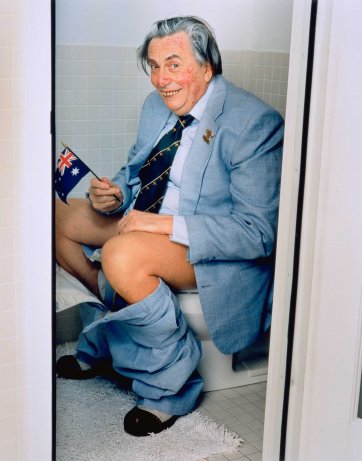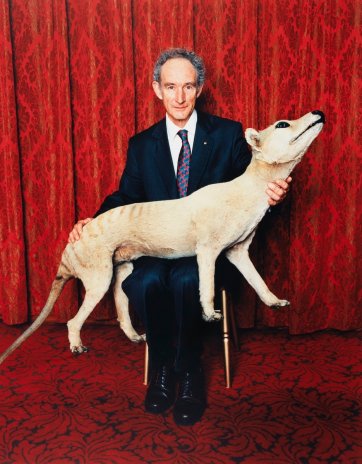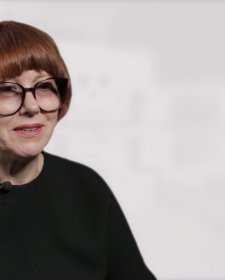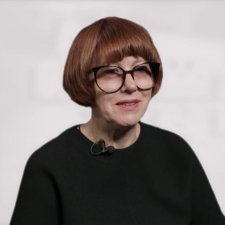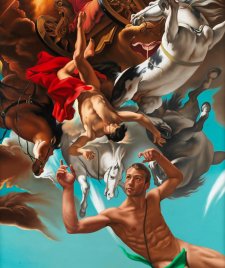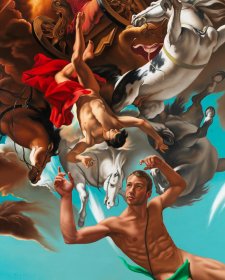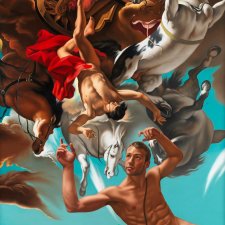Germaine Greer (b. 1939) is the author of the influential feminist book, The Female Eunuch (1970), which examines the ways in which passivity in women has been encouraged. The book was a sensation; it has never been out of print since it was first published, has been translated into twelve languages and has sold over one million copies. Born in Melbourne, Greer has not lived in Australia since the 1960s, but remains one of the country's best-known expatriates. For nearly forty years she has been an international academic and media personality and a truculent spokesperson on women's issues; thousands of fans and foes await her next provocative pronouncement. Greer's diverse books include The Obstacle Race (1979), about women painters; Sex and Destiny (1984), about the politics of fertility; The Change (1991), about menopause; and The Beautiful Boy (2003), about the representation of boys in art.
In 1999, Polly Borland was commissioned by the National Portrait Gallery, London to photograph prominent Australians living in Britain, including Greer. As Greer noted of the image in Polly Borland Australians: 'It was my idea to take my clothes off … because I did not fancy being portrayed on my bed like an old lady in a nursing home … It might surprise people to discover that sixty-one-year-old ladies can be playful.'
Purchased 2001
© Polly Borland
The National Portrait Gallery respects the artistic and intellectual property rights of others. Works of art from the collection are reproduced as per the
Australian Copyright Act 1968 (Cth). The use of images of works from the collection may be restricted under the Act. Requests for a reproduction of a work of art can be made through a
Reproduction request. For further information please contact
NPG Copyright.
